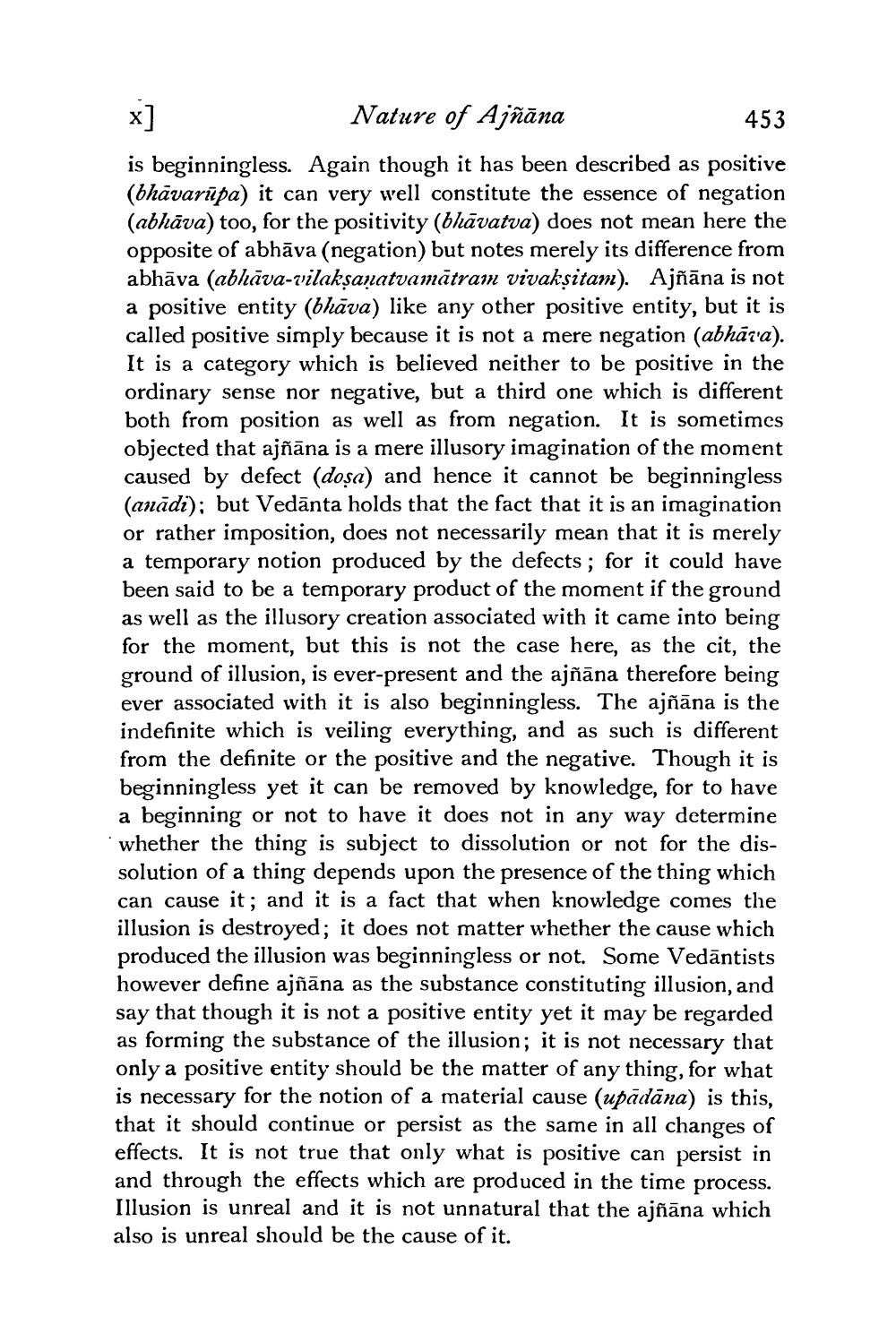________________
x]
Nature of Ajñāna
453
is beginningless. Again though it has been described as positive (bhavarupa) it can very well constitute the essence of negation (abhava) too, for the positivity (bhāvatva) does not mean here the opposite of abhāva (negation) but notes merely its difference from abhāva (abhava-vilakṣaṇatvamātram vivakṣitam). Ajñāna is not a positive entity (bhava) like any other positive entity, but it is called positive simply because it is not a mere negation (abhāra). It is a category which is believed neither to be positive in the ordinary sense nor negative, but a third one which is different both from position as well as from negation. It is sometimes objected that ajñāna is a mere illusory imagination of the moment caused by defect (dosa) and hence it cannot be beginningless (anadi); but Vedanta holds that the fact that it is an imagination or rather imposition, does not necessarily mean that it is merely a temporary notion produced by the defects; for it could have been said to be a temporary product of the moment if the ground as well as the illusory creation associated with it came into being for the moment, but this is not the case here, as the cit, the ground of illusion, is ever-present and the ajñāna therefore being ever associated with it is also beginningless. The ajñāna is the indefinite which is veiling everything, and as such is different from the definite or the positive and the negative. Though it is beginningless yet it can be removed by knowledge, for to have a beginning or not to have it does not in any way determine whether the thing is subject to dissolution or not for the dissolution of a thing depends upon the presence of the thing which can cause it; and it is a fact that when knowledge comes the illusion is destroyed; it does not matter whether the cause which produced the illusion was beginningless or not. Some Vedāntists however define ajñāna as the substance constituting illusion, and say that though it is not a positive entity yet it may be regarded as forming the substance of the illusion; it is not necessary that only a positive entity should be the matter of any thing, for what is necessary for the notion of a material cause (upādāna) is this, that it should continue or persist as the same in all changes of effects. It is not true that only what is positive can persist in and through the effects which are produced in the time process. Illusion is unreal and it is not unnatural that the ajñāna which also is unreal should be the cause of it.




